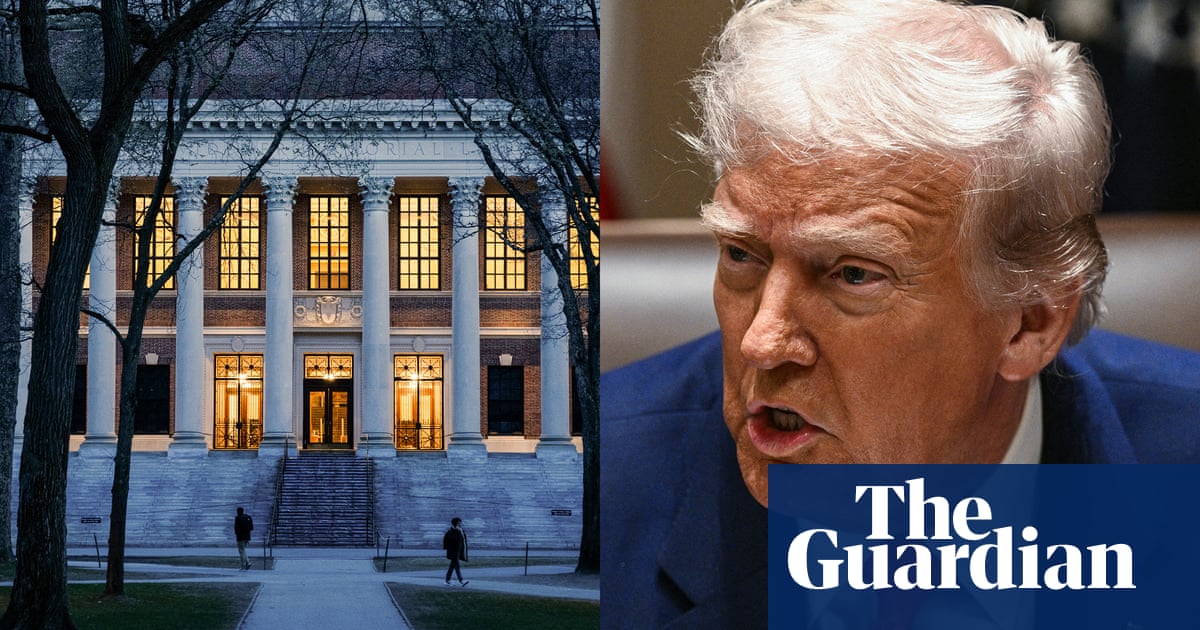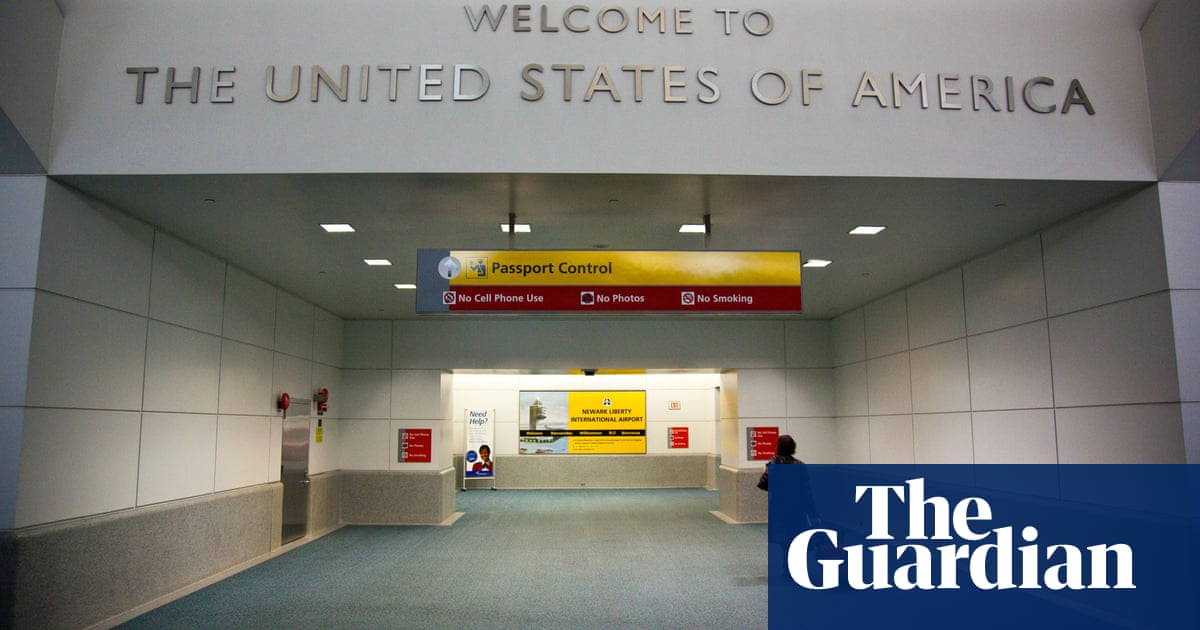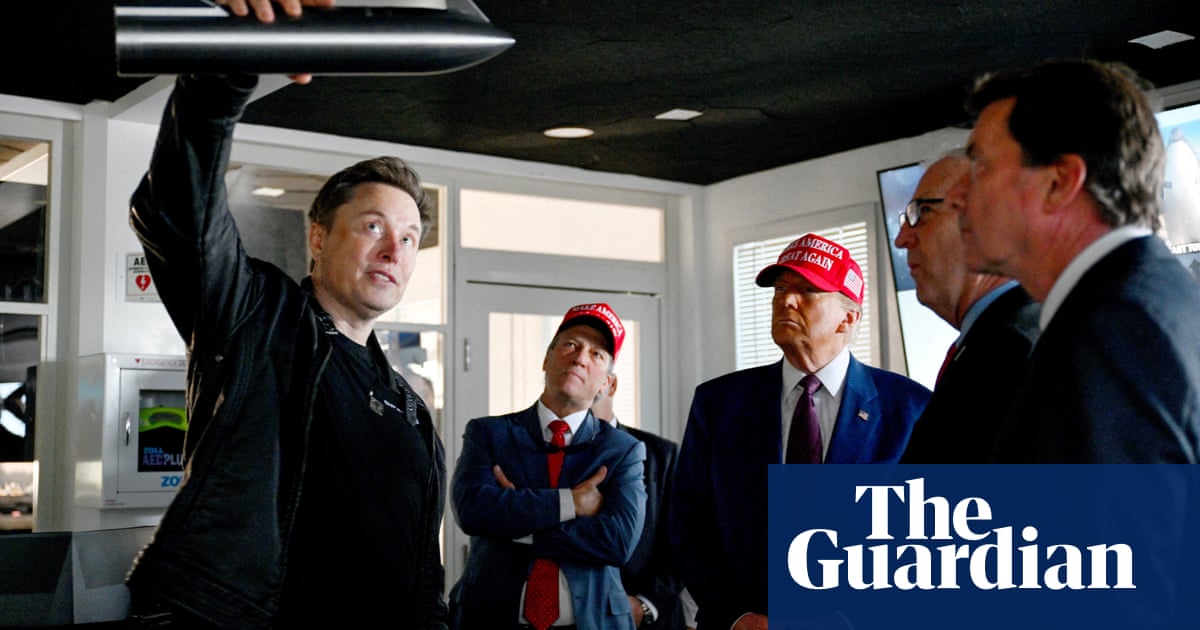Key events Show key events only Please turn on JavaScript to use this feature
Donald Trump has threatened Mexico with sanctions and tariffs in a dispute over water sharing between the two countries, accusing Mexico of breaking an 81-year-old treaty and “stealing the water from Texas farmers”.
Under the 1944 treaty, Mexico must send 1.75 million acre-feet of water to the US from the Rio Grande through a network of interconnected dams and reservoirs every five years, Reuters reports. An acre-foot of water is enough to fill about half an Olympic-sized swimming pool.
The current five-year cycle is up in October, but Mexico has sent less than 30% of the required water, according to data from the International Boundary and Water Commission.

Trump posted on his Truth Social platform on Thursday:
Mexico OWES Texas 1.3 million acre-feet of water under the 1944 Water Treaty, but Mexico is unfortunately violating their Treaty obligation.
My Agriculture Secretary, Brooke Rollins, is standing up for Texas Farmers, and we will keep escalating consequences, including TARIFFS and, maybe even SANCTIONS, until Mexico honors the Treaty, and GIVES TEXAS THE WATER THEY ARE OWED!
The office of Mexican president Claudia Sheinbaum did not immediately respond to a request for comment.

Phillip Inman
In the UK, shoppers stayed away from the high street in March, a situation retailers said could worsen if the economic gloom caused by Donald Trump’s tariff war hits consumer confidence.
Footfall fell 5% in March to extend a downturn in February that retailers said could be attributed to a recent rise in inflation and pressure on pay packets since a brief revival during the January sales.
Out-of-town shopping centres were the worst hit, falling by 5.8%, though traditional high streets and retail parks also suffered a loss of sales after drops in footfall of 4% and 1.2% respectively.
The British Retail Consortium said that while the impact of US tariffs on imported goods was difficult to calculate, it could have a chilling effect on people’s willingness to spend, especially on expensive items.
Helen Dickinson, the organisation’s chief executive, said:
Global uncertainties resulting from tariffs and a potential economic slowdown could reduce the appetite for shopping trips in the coming months.
See the full story here:
Australia’s S&P/ASX 200 has fallen on opening a short while ago, as expected, dropping 0.5% to 7,670.50 points in early trade after Wall Street’s sell-off overnight.
ASX to open sharply lower amid worsening trade war

Jonathan Barrett
Australian shares are poised to open sharply lower this morning, as concerns about Donald Trump’s unsettling policy shifts and deteriorating trade relations between the world’s two biggest economies take hold.
Futures prices are pointing to a 1.6% fall in the benchmark S&P/ASX 200 to 7,590 points when it opens later this morning, after a sell-off on Wall Street overnight.
Investors have had to contend with wild swings this week triggered by changes to the US tariff regime, with share prices pushed around by extreme bouts of relief and fear.
While some nations have enjoyed a reprieve from their super-sized tariffs, Australia’s position, along with those of the UK and New Zealand, are unchanged given they remain subject to the US “baseline” 10% charge.
The White House clarified overnight that total tariffs on China had been raised by 145% since Trump took office.
The Reserve Bank of Australia governor, Michele Bullock, said last night that an uncertain and rocky path lay ahead, saying “financial market and economic volatility can be expected as this process unfolds”.
The Australian dollar has recovered significant ground in recent days, rising to US62.2c this morning, after threatening to plunge below the 59c barrier earlier this week.
Opening summary
Hello and welcome to our live business coverage as the shockwaves from Donald Trump’s tariffs moves continue to buffet global markets.
The US president has blamed “a transition cost, transition problems” as US markets continued to sink in the wake of his seesawing global tariffs strategy and escalating trade war with China.
“We think we’re in very good shape,” Trump said on Thursday. “We think we’re doing very well. Again there will be a transition cost, transition problems, but in the end it’s going to be a beautiful thing.”
His remarks came as US stocks tumbled again after a historic rally following Trump’s surprise retreat on Wednesday on the hefty tariffs he had just imposed on dozens of countries. He has instead focused on China, where goods now attract tariffs totalling 145% effective immediately – 125% in “reciprocal” tariffs plus 20% already imposed for China’s alleged role in the fentanyl crisis.
Former US treasury secretary Janet Yellen said Trump’s tariffs were “the worst self-inflicted wound that I have ever seen an administration impose on a well-functioning economy”. She accused the US president of having “taken a wrecking ball” to the American economy.

China said Trump’s trade war with Beijing “will end in failure” for Washington. Beijing’s retaliatory 84% tariffs on US imports came into effect on Thursday. Its foreign ministry said it was not interested in a fight “but will not fear if the United States continues its tariff threats”.
In other developments:
-
The Dow was down 2.5% by Thursday’s end after soaring on Wednesday afternoon. The Nasdaq Composite was down more than 4%, after posting its biggest gain in more than two decades on Wednesday, and the S&P 500 down 3.4%.
-
Stocks seemed unresponsive to news on Thursday morning that the European Union announced it would suspend 25% retaliatory tariffs against US imports and new data showed inflation in the US cooled to 2.4% in March – both typically cause for optimism on Wall Street – reflecting the market’s apparent state of fatigue after a rollercoaster week, report Anna Betts and Lauren Aratani.
-
The US president said he would “love” to make a deal with China, and that he believed he and Chinese president Xi Jinping would “end up working out something that’s very good for both countries”.
-
China has said it will immediately restrict imports of Hollywood films in retaliation for the US president’s escalation of US tariffs on Chinese imports, targeting one of the most high-profile American exports. Beijing’s National Film Administration said Trump’s tariffs would further sour domestic demand for US cinema in China and it would “moderately reduce the number of American films imported”. The move comes after three decades during which China imported 10 Hollywood movies a year. Industry analysts said the financial impact was likely to be minimal, however, because Hollywood’s box office returns in China have declined significantly in recent years, Reuters reported.
-
Trump is facing accusations of market manipulation over a Truth Social post on Wednesday where he said it was a “great time to buy” just hours before he made a dramatic U-turn on his trade war that led to big rises in stock markets around the world.
-
The European Union and the United Arab Emirates have agreed to launch free trade talks. The EU is the UAE’s second-largest trading partner, accounting for 8.3% of the Emirati total non-oil trade.

 1 week ago
18
1 week ago
18













































